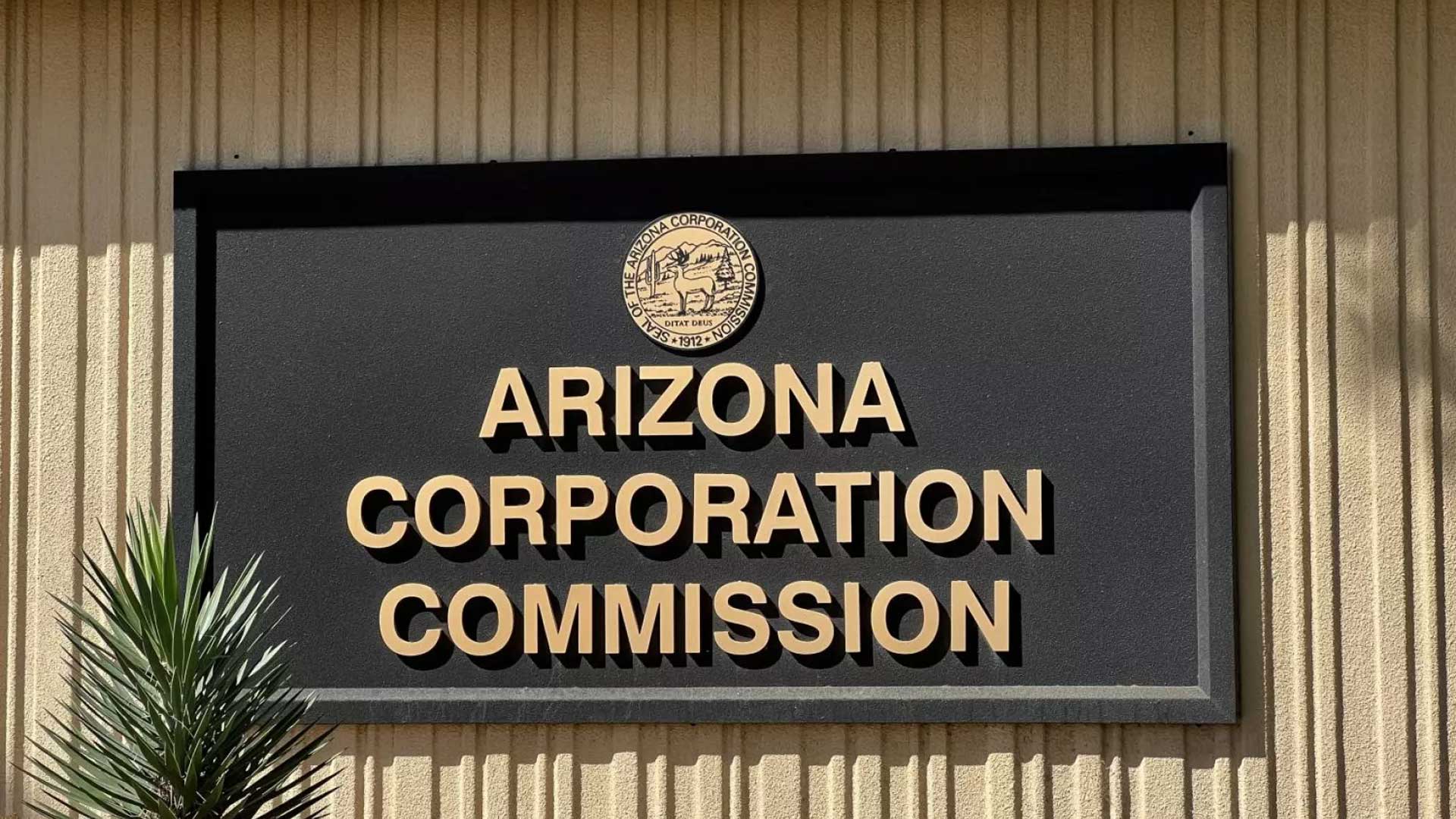 Arizona Corporation Commission building in downtown Phoenix.
Arizona Corporation Commission building in downtown Phoenix.
The Arizona Corporation Commission indicated it could move to take over a struggling rural water company that serves about 150 people in La Paz County if it doesn’t resolve a litany of issues left behind by its owner, who died in 2023.
According to Corporation Commission staff, Salome Water Company is out of compliance with several state regulatory agencies. That includes the commission itself, which revoked the company’s permit to operate on four occasions, and the Arizona Department of Environmental Quality, which called on the company to replace its old water tank that is located too close to train tracks.
The company is also in financial disarray and had no staff in place when its owner died in June 2023.
Steve Wene, an attorney for Salome Water, said the company is currently being operated by Jim Downing, a local engineer with a background in operating utilities, and Southwestern Utility Management. Wene, Downing and the management company have not been paid since Farr died.
“That's the point I'm making here, is that the whole community is pitching in to help, because everybody knows that Mr. Farr, the former owner, kind of ran this thing over a cliff,” Wene said.
Many of the company’s issues existed prior to William Farr’s death.
According to commission staff, demand on the Salome system is already at 100% and it needs an array of fixes, including the new water tank. And the company is concerned a new tank would create higher water pressure that its antiquated distribution system cannot handle.
The company asked the Corporation Commission to approve a $24.50 monthly surcharge on customers to improve its financial stability as well as give it permission to take out a $100,000 loan for a new pipeline and a $2.1 million loan from the state’s Water Infrastructure Finance Authority to pay for a new well and storage tank.
Salome is currently operating at a deficit – spending more money than it takes in – despite still charging an $8 surcharge on customers that was approved by the commission as an 18-month emergency measure in 2017.
That didn’t sit well with the commissioners, who are charged with regulating most of the state’s utility providers.
Chairman Jim O’Connor considered starting an “order to show cause” process that could allow the commission to take control of Salome Water and appoint a company to run it, similar to the action the commission took in 2018, when it handed control of Johnson Utilities to a new manager over the company’s mismanagement of a system that served tens of thousands of customers in southeast Maricopa and northern Pinal counties.
“This is a pathetic case, and I know we shouldn't speak ill of the dead, but it would have been great if he could have taken this problem with him wherever he went,” O’Connor said.
The Corporation Commission stopped short of taking that action with Salome Water Company.
Instead, the commission voted to direct the company’s current management to file a rate case – a formal process overseen by an administrative law judge in which a utility opens its books to justify its rate requests – within six months.
If it fails to do so, the company will have to pay back the unauthorized surcharges it levied on customers, and the commission indicated it would begin the “order to show cause” process.
In the meantime, the commission encouraged the company’s new owner to sell to a larger utility with the resources to invest in the water system.
Downing, with the engineer managing company, said Cactus State, which bought a nearby small utility, has inquired about purchasing Salome but that Stacy Romero Brown, the new owner, “is not interested in selling.” Romero Brown is the daughter of a former co-owner of the utility company and inherited the business upon Farr’s death, Downing said.
Both O’Connor and Commissioner Lea Márquez Peterson implored Romero Brown, who did not attend the meeting, to reconsider.
“This company needs a rescue, and a component of that rescue is one of those larger water companies that has a thing called capital that are willing to show up at the table and take the liability off Ms. [Romero] Brown's shoulders,” O’Connor said.
For now, Wene said the company is still providing water that meets state and federal quality requirements to most customers, though it did cut off watering services for sports fields at two schools.
But the Salome system’s water could run out soon.
Wene said the company owns one well that is expected to go dry within six months. It is also connected to a second well owned by a friend of Farr, the longtime owner, but there is no actual written agreement in place to allow that usage to continue.


By submitting your comments, you hereby give AZPM the right to post your comments and potentially use them in any other form of media operated by this institution.